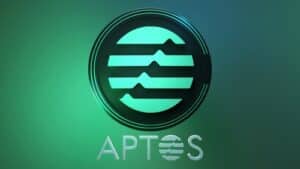Thailand has restricted crypto custody and lending services.

Share this article
In an effort to strengthen investor protection in the digital asset space, Thailand's Securities and Exchange Commission (SEC) has issued new guidelines for firms that provide digital asset services, including the use of customer assets for investment and lending. More disclaimers on the dangers of using crypto on their website. The following risk should be considered as a guideline:
“Cryptocurrencies are high risk. Please study and understand the risks of cryptocurrencies thoroughly as you may lose the entire investment amount.
These regulations prohibit service providers from using customer funds for lending or investment activities, and prohibit “digital asset business operators from providing digital asset custodian services to deposit returns and loans (deposits and loans).”
This measure effectively puts a cap on crypto lending services, restricting platforms from offering any returns on crypto deposited by customers. The SEC's intent with these regulations is to enhance investor protections against risks associated with credit services and is expected to take effect on August 30. The advertisement reads:
“Digital assets are not permitted to be deposited with digital asset deposits or other returns to depositors (e.g., from the company's marketing budget) except in the context of a sales promotion,” the SEC said.
The SEC has acknowledged the need for businesses in the cryptocurrency space to disclose the risks of trading cryptocurrencies by September 2022.
“Prescribing warnings about investment risks in advertising. The style of presentation should be clear and easy to read. It should provide useful information for making complete investment decisions.”
This is not the first law that Thailand has passed, showing how dangerous the use of digital assets is for the Thai government. The Bank of Thailand and the country's SEC have banned crypto payments for goods and services to protect the stability of the financial system and the wider economy.
Trading and holding assets are still allowed, the SEC and the central bank said in a statement: “Since most digital assets are built on decentralized public blockchain technology, there is no regulatory body and no established security standards.” If there is a problem, users may not be protected. Several payment systems […] If consumers use multiple systems, it can cause confusion or cost.
Share this article
The information contained or included in this website is obtained from independent sources that we believe to be accurate and reliable, but we make no representations or warranties as to the timeliness, completeness or accuracy of information obtained through this website. . Decentralized Media, Inc. Not an investment advisor. We do not provide personalized investment advice or other financial advice. The information on this website is subject to change without notice. Some or all of the information on this website may be out of date, or may be incomplete or incorrect. We may, but are not obligated to, update any outdated, incomplete or inaccurate information.
You should not make an investment decision in an ICO, IEO or other investment based on the information on this website and you should never interpret or rely on any information on this website as investment advice. If you are seeking investment advice on an ICO, IEO or other investment, we strongly recommend that you consult a licensed investment advisor or other qualified financial professional. We do not receive compensation in any form for analyzing or reporting on any ICO, IEO, cryptocurrency, currency, tokenized sales, securities or commodities.
See full terms and conditions.













